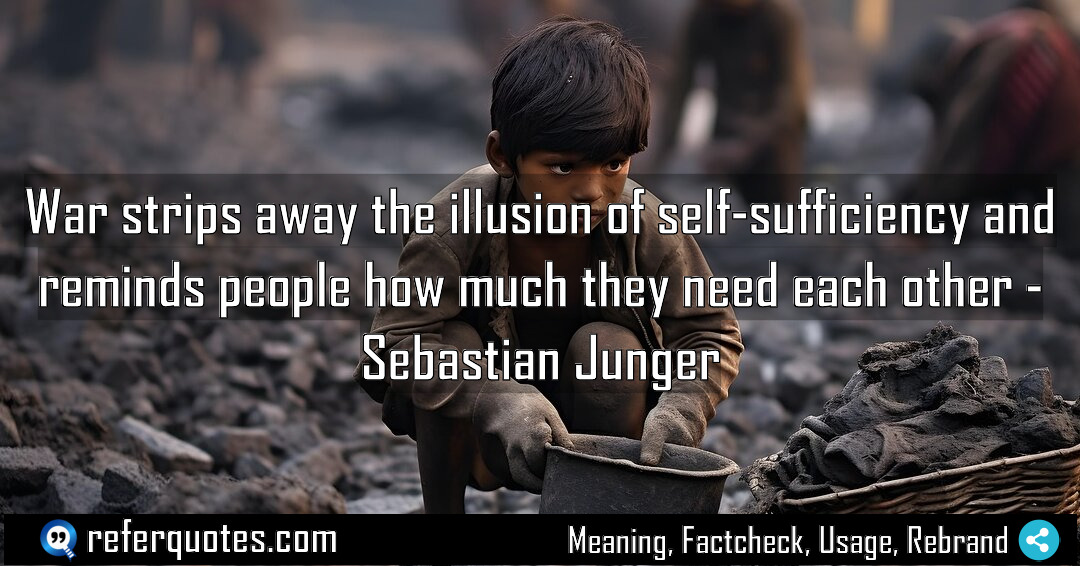War strips away the illusion of self-sufficiency and shows us just how deeply we’re wired for connection. It’s a brutal reminder that our modern independence is a fragile construct, and true resilience is found in community, not in going it alone.
Share Image Quote:Table of Contents
Meaning
At its core, this quote means that extreme adversity shatters the modern myth that we can or should do everything ourselves, revealing our fundamental, biological need for a tight-knit community.
Explanation
You know, we walk around in our modern lives thinking we’ve got it all figured out. We have our careers, our individual goals, our curated social media feeds. We pride ourselves on our independence. But here’s the thing Junger hits on—it’s an illusion. A comfortable one, but an illusion nonetheless.
What war does, and what any true crisis does, is it instantly vaporizes all that. Suddenly, your survival doesn’t depend on your resume or your bank account. It depends on the person next to you. It depends on shared purpose, on mutual protection, on a profound and immediate sense of belonging. That’s the “tribe.” And the crazy part? For all the trauma, many people come back from that and feel a deep, almost inexplicable longing for it. Because it’s a more authentic, more connected way to be human. It answers a need we’ve spent the last few centuries conveniently forgetting we even have.
Quote Summary
| Context | Attributes |
|---|---|
| Original Language | English (3668) |
| Category | Wisdom (385) |
| Topics | dependence (3), illusion (22), solidarity (2) |
| Literary Style | philosophical (434) |
| Emotion / Mood | solemn (4) |
| Overall Quote Score | 82 (297) |
Origin & Factcheck
This insight comes straight from Sebastian Junger’s 2016 book, Tribe: On Homecoming and Belonging. It’s a work of non-fiction that blends psychology, anthropology, and history. You sometimes see this sentiment echoed elsewhere, but this specific, powerful phrasing is Junger’s. He’s not just talking theory; he’s built this on years of reporting from conflict zones.
Attribution Summary
| Context | Attributes |
|---|---|
| Author | Sebastian Junger (60) |
| Source Type | Book (4032) |
| Source/Book Name | Tribe: On Homecoming and Belonging (60) |
| Origin Timeperiod | 21st Century (1892) |
| Original Language | English (3668) |
| Authenticity | Verified (4032) |
Author Bio
Sebastian Junger is born in Belmont, United States on 1962. He studied cultural anthropology at Wesleyan University and built his career in journalism. He is the one of the leading contributor and editor at Vanity Fair. Along with Tim Hetherington, he codirected Restrepo(2010 American documentary), which went on to win Sundance’s Grand Jury Prize and an Academy Award nomination. The Sebastian Junger book list includes The Perfect Storm, Tribe, A Death in Belmont, Freedom, War, and In My Time of Dying, each marked by distinct writing style
| Official Website
Where is this quotation located?
| Quotation | War strips away the illusion of self-sufficiency and reminds people how much they need each other |
| Book Details | Publication Year: 2016; ISBN: 978-1-4555-6638-6; Last edition: 2017; Number of pages: 192. |
| Where is it? | Chapter 2: War Makes You an Animal, Approximate page 49 from 2017 edition |
